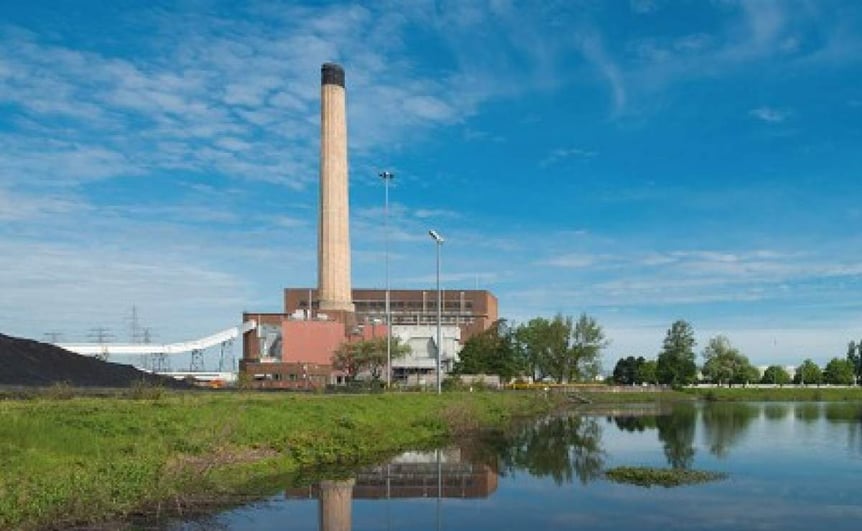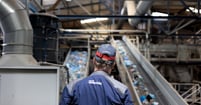Coal-fired power generation has long been a popular option for providing reliable, dispatchable, and economical electricity on a massive scale. Globally, it remains the largest source of electrical power, supplying over 40% of total electricity consumption.
However, as society becomes increasingly aware of the connection between anthropogenic greenhouse gases and global warming, the environmental consequences of coal-fired power generation are becoming increasingly unacceptable.
Pulverized coal-firing technology and its popularity in large-scale power production
Given its chemical nature, coal is the most carbon-intensive form of electricity generation, producing double the CO₂ of renewable sources. Despite this, coal has remained a crucial part of the electricity system, supplying essential, on-demand electricity to industries and households.
This reliance on coal has been demonstrated by the lifting of restrictions on coal use and the reopening of plants across Europe due to the ongoing war in Ukraine.
Lower climate impact compared to coal and lower CO₂ emissions
One of the most promising routes to decarbonising existing coal-fired power is substituting coal with lower-carbon alternative fuels. This results in rapid reductions in net carbon emissions while retaining valuable infrastructure and providing much-needed heat and electricity.
The undeniable pressure industries face to reduce the environmental impact is more apparent than ever. In the past, the possibilities to make drastic changes were restricted by the nature of industrial processes and the need to continue to supply heat, electricity and raw materials. While companies may have wanted to make a positive impact, their opportunities to do so were limited.
However, with the innovation of advanced waste-derived alternative fuels, the potential for positive change is enormous. These fuel sources have the potential to simultaneously reduce net Carbon emissions of existing critical industries but also to dramatically improve the sustainability and circularity of such industries by encouraging resource recycling and infrastructure re-use.
The potential for alternative fuels to reduce both environmental and economic costs
Typically, the significant change in fuel source from fossil to alternative fuels would require drastic infrastructure changes for fuel handling, combustion and emissions control equipment.
However, during the production process waste derived alternative fuels can be engineered to meet a tight specification, minimising the changes required to accommodate the new fuel. Waste-derived alternative fuel use can benefit almost every aspect of a plants operating cost whilst delivering significant environmental benefits in comparison to fossil fuels.
The most significant improvement in power plant operating costs when substituting coal for waste-derived alternative fuels is the reduction in EU-ETS associated Carbon costs. These costs have grown massively in the last years and are now the most significant single cost for an operating coal fired power plant in Europe. CO₂ costs are reduced by between 55 and 65% when replacing coal with waste-derived alternative fuels in these applications.
The promise of biomass
One of the most promising alternative fuels able to displace coal in power generation uses is biomass. Biomass is organic matter derived from recently grown plant material that can be used as a fuel source. This includes wood, agricultural waste, and even certain types of garbage. Biomass can be used in various forms, such as pellets or briquettes, and can be burned to produce heat or electricity. Because the carbon contained within the biomass has recently been absorbed from the atmosphere, should sustainable sourcing be practised, the use of biomass as a fuel is deemed to have no net impact on anthropogenic global warming.
There are growing concerns regarding the sustainability of biomass use in electricity production due to its impact on natural ecosystems and significant processing required prior to use. This has driven the EU to mandate that all biomass used in energy supply should be classed as secondary biomass, in other words only the unusable by-products of forestry and wood processing activities.
The promise of waste-derived alternative fuel
Waste-derived alternative fuels are a growing alternative to coal in a number of industries including power generation, cement, steel and lime manufacturing. Waste-derived fuels are produced by size reduction, sorting, drying and densification of suitable domestic and commercial waste streams which cannot be recycled. This process removes moisture and contaminants and produces a high heating value fuel which can be used to displace coal in a range of applications with minor changes to existing infrastructure.
Due to the nature of the raw waste streams used to produce waste-derived alternative fuels, they contain a significant proportion of waste biomass material in the form of paper, cardboard, wood and fabric wastes. This biomass content ensures that the net Carbon intensity of such fuels when used in power generation results in a 55-65% reduction compared to coal.
Furthermore, unlike with biomass fuel, this material has not been sourced specifically for its use as a fuel. The materials used in waste-derived fuel production have undergone at least one, and often a number of lives as a useful product before being utilised as a fuel. This re-use of the material massively reduces system life cycle carbon and resource intensity compared with virgin biomass or fossil fuels.
Why waste-derived fuels are so promising for power plants
Waste-derived fuels are a promising solution for decarbonizing existing coal-fired power plants. Not only do they produce significantly fewer carbon emissions, but they also help reduce the pressure on landfills and oceans and encourage resource circularity. On a business level, they overdeliver in all aspects, reducing carbon-emission costs and minimising exposure to fossil fuel markets.
If you are interested in learning more about the use of alternative fuels in power plants, you can have a free consultation with our thermal application specialist Dr Phil Jenkinson at N+P Group. As a thermal plant engineer, he has the knowledge to help you further your search to lower carbon emissions and operating costs for power generation plants.





